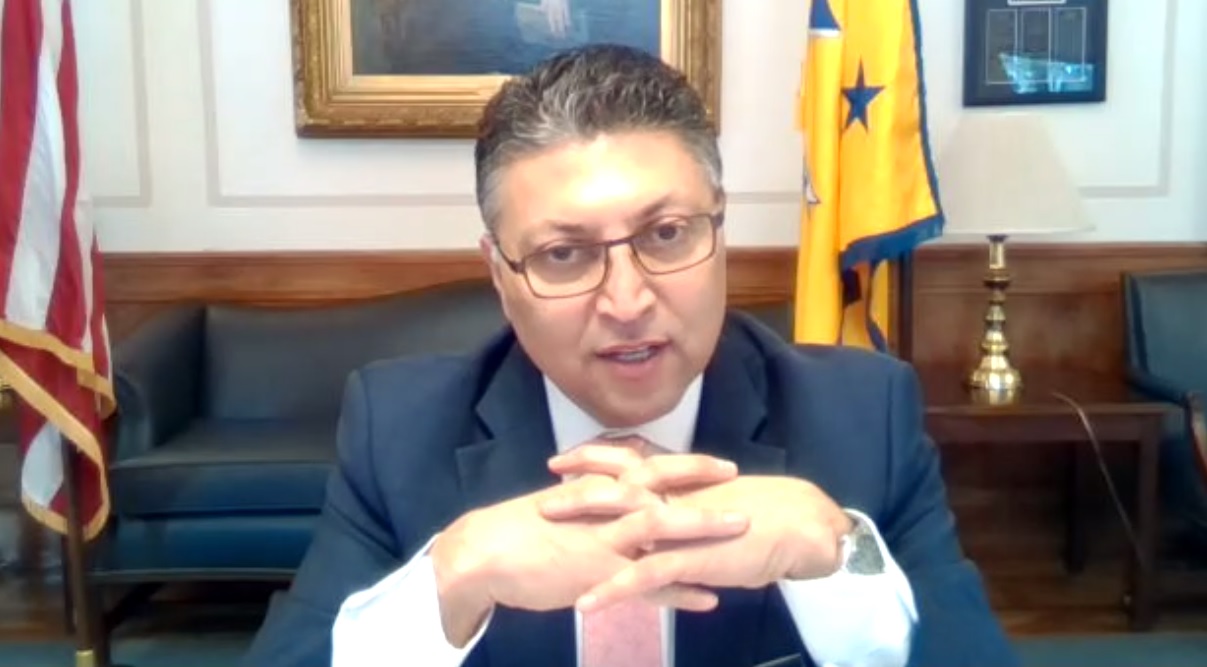DOJ's Makan Delrahim Proposes Public-Private Big Tech Regulatory Agency
Says that is way to provide flexible, necessary, oversight of online platforms, digital markets

The smarter way to stay on top of the multichannel video marketplace. Sign up below.
You are now subscribed
Your newsletter sign-up was successful
Department of Justice Antitrust Chief Makan Delrahim said that if the government does not find a way to harness the massive market power of those platforms to democratic policies, the country risks "devastating outcomes for our civil democratic society."
He suggested one solution could be a new "public-private" agency, the Digital Markets Rulemaking Board, with the power to regulate edge providers like social media sites.
Also Read: Delrahim Seeks Examples of Online Platform Anticompetitive Conduct
"The single greatest issues facing my successors, the new Congress, and the public relate to concerns of market integrity and market power in the increasingly concentrated digital marketplace," he said. "These issues include data portability, non-discrimination and interoperability of digital products and services."
Delrahim was delivering some sobering final thoughts about Big Tech in a speech to the Duke’s Center on Science & Technology Policy on his last day as, he pointed out, the Senate-confirmed assistant attorney general in the Antitrust Division.
He said that policy solutions in the current debate over the power of online platforms and digital markets have ranged from "command and control" regulations from a new agency charged with overseeing digital technology to breaking up companies with a certain size (like Google and Facebook and Twitter), to laissez-faire self regulation.
Delrahim instead suggested a hybrid public-private rulemaking body with "limited" oversight to increase both competition among and trust in online platforms.
The smarter way to stay on top of the multichannel video marketplace. Sign up below.
He said that agency could come up with rules to prevent discrimination by larger platforms against products or services either because they compete with them or because they "espouse viewpoints inconsistent with those of the platform operators."
Also Read: DOJ OK With Online Ad Production Services Market
That new Digital Markets Rulemaking Board (DMRB) would be "a private/public self-regulatory board consisting of industry and public members with technical and policy expertise with the mission to develop and propose market-based, non-discriminatory rules to promote market integrity."
He said a public-private hybrid would help gain the trust of the public while letting government tap into the tech savvy of private industry.
He said it would be the most appropriate regulatory model because it would have the flexibility to adapt to swiftly changing technology that a "rigid command-and-control" regime lacks.
He also said the DMRB's rulemaking authority should cover things including "interoperability, self-preferencing, non-discrimination and data portability."
He said the resulting rules would need "limited" review and sign-off by DOJ or some other agency.
Delrahim also had some legislative proposals on the merger front.
Also Read: FTC, DOJ Big Tech Investigations Suffer Overlap Issues
He said that Congress should pass a new law that any further acquisitions in a market by a firm with more than 50% market share in that market be presumptively anticompetitive, rebuttable only by a showing that the merged company could not exercise market power or that the anticompetitive effects are outweighed by pro-competitive benefits.
One of Justice's concerns about Big Tech is that it got and stayed that way by buying up competitors before they raised red flags on antitrust grounds. He said the presumption should apply "regardless of the size of the target company," which would help address that concern.
Contributing editor John Eggerton has been an editor and/or writer on media regulation, legislation and policy for over four decades, including covering the FCC, FTC, Congress, the major media trade associations, and the federal courts. In addition to Multichannel News and Broadcasting + Cable, his work has appeared in Radio World, TV Technology, TV Fax, This Week in Consumer Electronics, Variety and the Encyclopedia Britannica.

